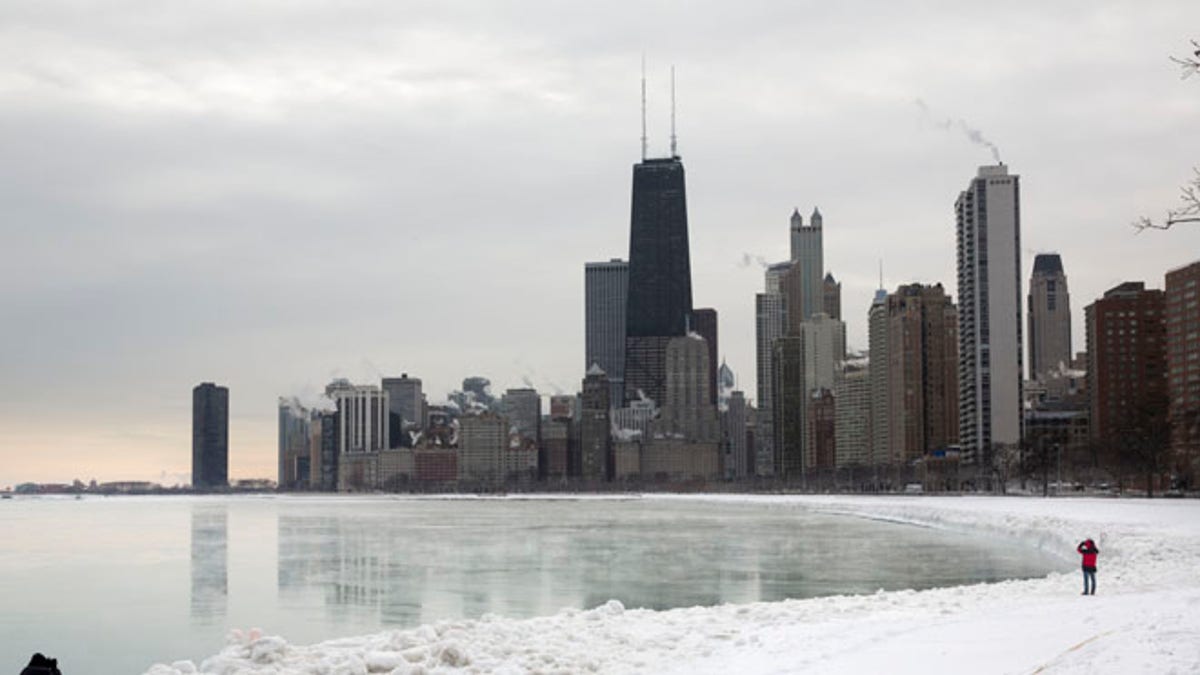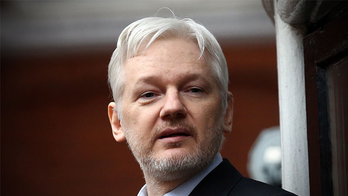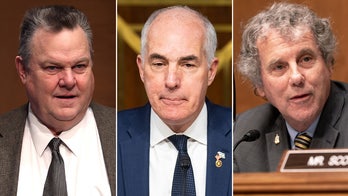
Jan. 7, 2014: Shown here is the Chicago skyline. (AP)
As President Obama laid out his "Promise Zones" for economic development, he made a notable omission -- his hometown of Chicago.
The president's beginnings were on the South Side of that city, first as a community organizer, then as a state senator.
Today, though, swaths of the city are a powerful reminder that the "War on Poverty" is not over. And some wonder where the federal government is.
The Englewood neighborhood is probably the most severe example of poverty in Chicago. It is a focal point of the street violence that plagues the South Side. On many streets, the boarded up homes seem to outnumber the occupied ones.
"This used to be a working-class poor community," state Rep. Mary Flowers said. "There used to be hospitals here, libraries, schools, transportation, stores, theaters. That's all gone now."
Walking the streets of Englewood, Rev. Jesse Jackson stopped short of accusing the president of abandoning his hometown -- but Jackson noted the lack of attention to the poverty in Chicago.
"I wish he would do something major like come to Englewood where he was an organizer and bring with him the agencies of government," he said.
Jackson was there to mark 50 years since President Lyndon B. Johnson first announced the War on Poverty. At the time, 36 million Americans lived below the poverty line. Today, that number has risen to 47 million.
The number has risen primarily because the population has increased. However, after an estimated $15 trillion have been spent on anti-poverty programs, the percentage of people living below the poverty line has only decreased by 4 percent -- from 19 percent to 15 percent. Experts say the numbers show government can ease symptoms but has been ineffective as a cure for poverty or narrowing the income gap.
"Most of that inequality is caused because some people are working a lot harder, acquiring more scarce skills and becoming quite good at it -- while there is another group of people who are increasingly detached from the workforce," said Joseph Bast, of the Chicago-based Heartland Institute. "They are working less hours and are less likely to compete school and more likely to have prison records."
Jackson argues that the War on Poverty failed because attention and resources were diverted, first to the Vietnam War. He blamed plain-old capitalism and greed, as well as predatory lending. When the bubble burst, loans were foreclosed and South Side neighborhoods were left blighted.
Budget cuts impacted welfare and unemployment programs.
As Jackson stood in what may well be the most cash-starved neighborhood in Chicago, he did not feel the support of the government or his old friend who is running it.
"This is the opposite of the War on Poverty, this is the War on the War on Poverty," he said.




